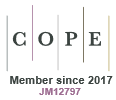Just Accepted
This article has been peer reviewed and accepted for publication. It is in production and has not been edited, so may differ from the final published form.
Fatigue in wildland firefighting: relationships between sleep, shift characteristics, and cognitive function
Abstract
Background: Wildland firefighting requires exposure to long shifts and poor sleep, which may pose a risk to worker safety via impaired cognitive function. Aims: We sought to investigate the associations between sleep, shift characteristics and cognitive function in wildland firefighters. Methods: We conducted a within-subject observational study with 25 wildland firefighters from the British Columbia Wildfire Service. Data was collected remotely during the 2021 and 2022 fire seasons. Wrist-worn actigraphy and the psychomotor vigilance task served as objective, mobile measures of sleep and cognitive function, respectively. Web-based surveys were used to collect shift information and subjective cognitive function. Linear mixed effects modelling was used to control for inter-individual differences and explore the influence of participant-factors. Key Results: Average sleep duration on fire suppression days was 6.7 hours (SD: 66 min), while average shift duration was 13.8 hours (SD: 108 min). Poor sleep and longer shift durations were both associated with reduced cognitive function across all metrics (p<0.01; p<0.001). Conclusion: Firefighters are often exposed to poor sleep and long shifts, both of which were associated with impaired cognitive function. Implications: Our results highlight the need for fire agencies to consider fatigue-related cognitive impairment as important factor for worker health and safety.
WF24212 Accepted 27 May 2025
© CSIRO 2025


